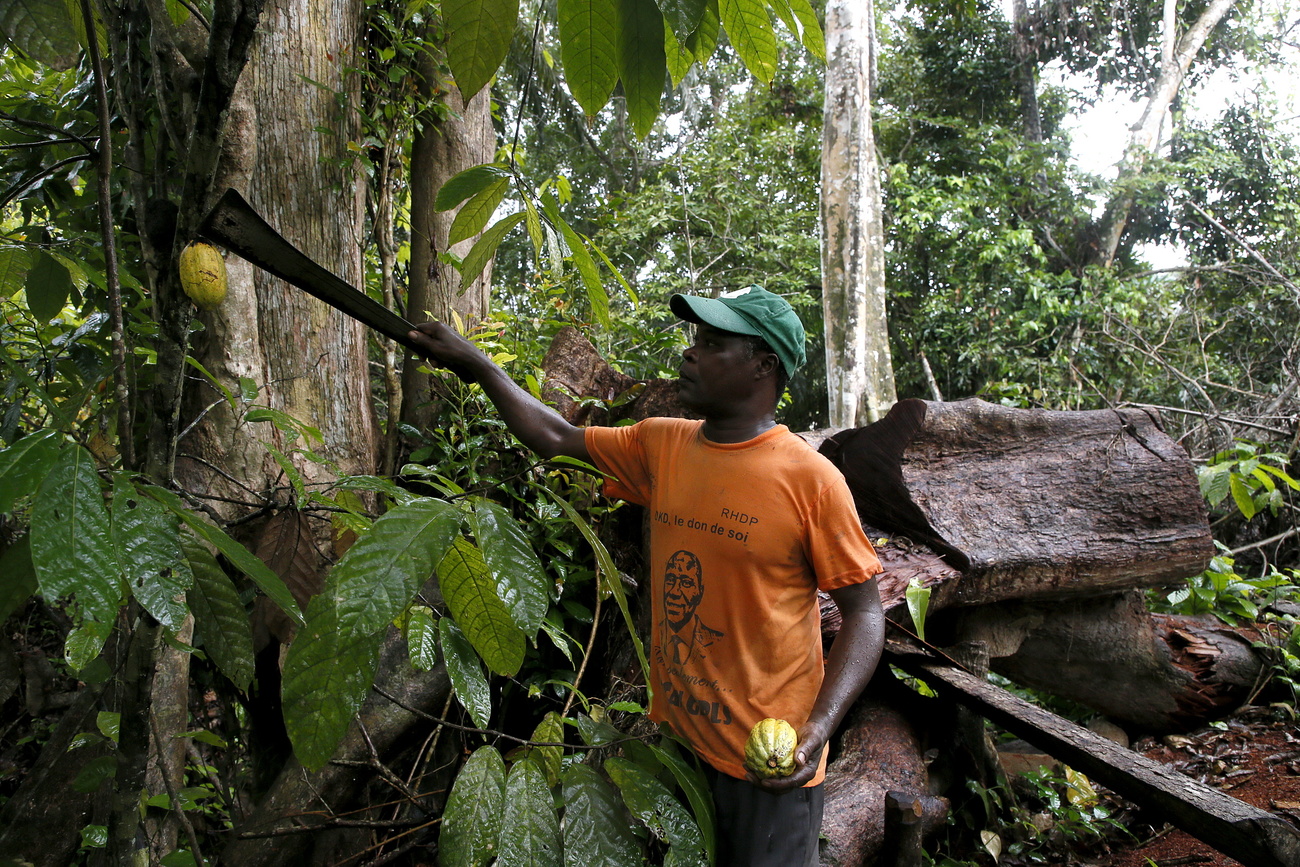Nestlé Supreme Court ruling further limits accountability for company actions abroad

The United States Supreme Court’s dismissal of a case against Swiss food giant Nestlé by former Malian child slaves will likely make it more difficult for non-citizens to get justice for crimes committed in other countries.
An 18th-century law designed to give foreign victims of international crimes like piracy the chance to be heard in American courts was recently put to the test. The Alien Tort Statute (ATS), adopted in 1789, was first used in 1976 to prosecute a Paraguayan police officer living in Manhattan for his role in the torture of a young man in Paraguay. The case opened the possibility for non-citizens to get justice in US courts for crimes committed abroad. Since then, ATS has been used to prosecute human rights abusers hiding in the US as well as the US government itself. But despite a few attempts, no case against a company has ever been won using ATS.
Six former child slaves from Mali sought to change that in 2017. They filed a case in the Los Angeles district court against food and agriculture multinationals Nestlé and Cargill using ATS. Their aim was to hold the companies responsible for their having been trafficked to the Ivory Coast where they were forced to harvest cocoa. The Malians claim that Nestlé and Cargill should be held responsible as they allegedly provided money and training to the farms in Ivory Coast where they were held, in return for exclusive rights to their cocoa beans. Lawyers for the Malian plaintiffs argued that the two companies profited from child trafficking and slavery and are therefore guilty.
‘More domestic conduct’
The case was dismissed by the district court on the advice of the Supreme Court but the New York’s Ninth Circuit Court took it up and reversed part of the decision. The case recently came before the US Supreme Court which ruled on Thursday to dismiss it. In their ruling, the justices reasoned that the Malians’ situation did not have a strong enough connection to the US to justify the use of ATS. Simply having a corporate presence in the United States is not enough to link a crime in Ivory Coast to the US branch of Nestlé, the court ruled in an 8-1 decision.
“To plead facts sufficient to support a domestic application of the ATS, plaintiffs must allege more domestic conduct than general corporate activity common to most corporations,” wrote Justice Clarence Thomas for the majority.
Because the case was dismissed, the issue of whether chocolate companies and commodity firms can be held accountable for crimes abroad never had its day in court. Nevertheless, Nestlé is confident that it would have won if the case had come to trial.
“Nestlé never engaged in the egregious child labor alleged in this suit, and we remain unwavering in our dedication to combatting child labor in the cocoa industry and to our ongoing work with partners in government, NGOs and industry to tackle this complex, global issue,” the company said by email.
High barrier for entry
Thursday’s decision is another setback for business and human rights campaigners hoping to use the ATS to hold US-based companies to account for their actions abroad. Each corporate ATS case that reached the Supreme Court made it harder for the next one to be accepted. For example, the 2013 ATS case against Royal Dutch Petroleum brought by Nigerian citizens was dismissed for weak US links and led to the creation of a so-called “touch and concern test”.
“This means that US courts do not assume jurisdiction unless the operations of the business ‘touch and concern the territory of the US with sufficient force’,” says Oliver Classen of Swiss NGO Public Eye.
Five years later, families of victims of terror attacks in the Middle East filed an ATS case against Arab Bank alleging that its New York branch was used to funnel money to terrorists. This case was also dismissed by the US Supreme Court which ruled that ATS causes of actions do not extend to foreign corporations. Both these attempts set for a high bar for the use of ATS against corporate entities. Thursday’s dismissal of the case against Nestlé is no exception.
“Yes, this decision will further restrict the possibility of using the ATS as a legal basis to sue corporations,” says Classen. “But while the business community had hoped for a clarification as to whether corporations may be sued under the ATS at all, the court had left this question unanswered.”
No right to sue
In previous cases, the Supreme Court has made it clear that ATS on its own does not empower foreigners to sue in US courts. Instead, those harmed by a violation of international law “must rely on legislative and executive remedies, not judicial remedies, unless provided with an independent cause of action”, the court wrote in its ruling.
Can Switzerland draw any lessons from US jurisprudence after its citizens narrowly voted down an initiative to hold companies legally liable for their actions abroad in 2020?
According to Classen, it is difficult to speculate about how the provisions in the voted-down initiative would ultimately have been put into practice. But he says that if the RBI had been voted in, it would have resulted in overarching responsibility for all corporations that would be superior to just assessing the wrongdoings of a particular company like Nestlé, which is what the US court did.
“Under the RBI, the victims would thus not have had the problem that the relevant conduct occurred extraterritorially,” Classen says. “The much bigger problem would have been proving the control relationship between the parent and the subsidiary.”
The Swiss Responsible Business Initiative was rejected by the cantons in November 2020 despite winning 50.7% of the popular vote in a public referendum. In the Swiss legislative system, a majority of both the popular vote and cantonal vote is needed for an initiative to pass and the rejection of an initiative qualifies the counterproposal to automatically enter into force following a consultation period.
The public consultation period for this legislative proposal will end on July 14, and if approved the final text will enter into force on January 1, 2022.
In addition to a human rights due diligence obligation for Swiss companies engaged in the trade or processing of certain metals and minerals, the counterproposal stipulates a binding law that requires Swiss “public interest companies” with over 500 employees and an annual revenue of over CHF 40 million to issue non-financial reporting. The failure to comply with this reporting requirement can result in fines up to CHF100,000 ($111,000).
Discussions are also underway in several European countries and at an EU level to establish laws on mandatory human rights due diligence.

In compliance with the JTI standards
More: SWI swissinfo.ch certified by the Journalism Trust Initiative














You can find an overview of ongoing debates with our journalists here . Please join us!
If you want to start a conversation about a topic raised in this article or want to report factual errors, email us at english@swissinfo.ch.